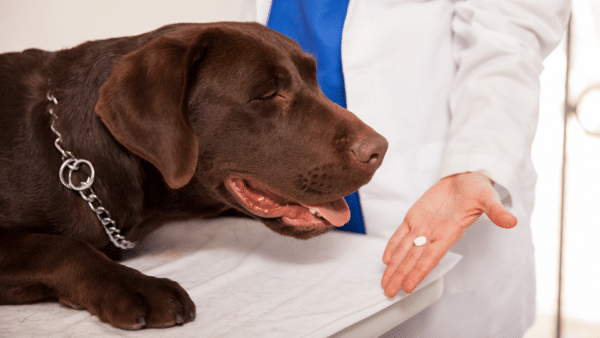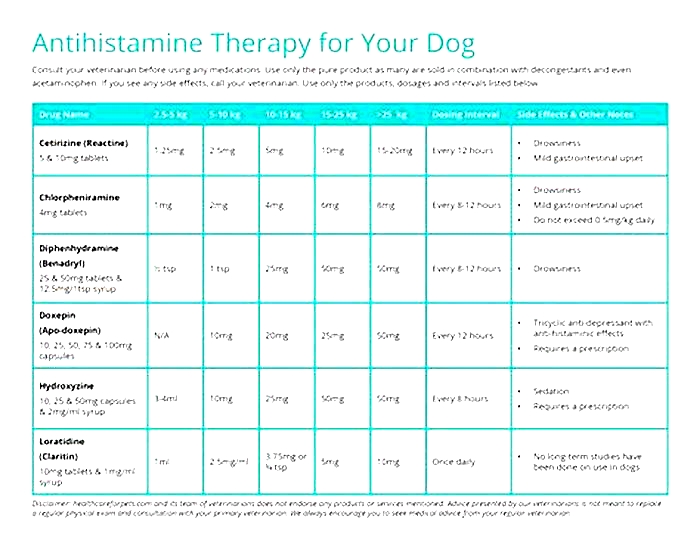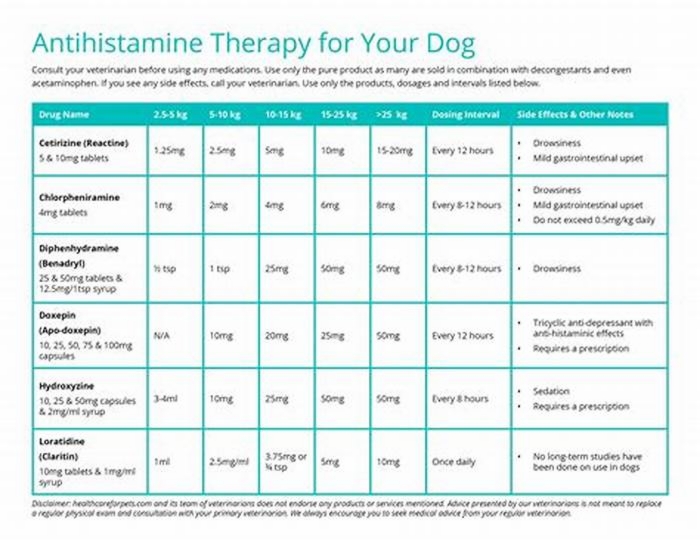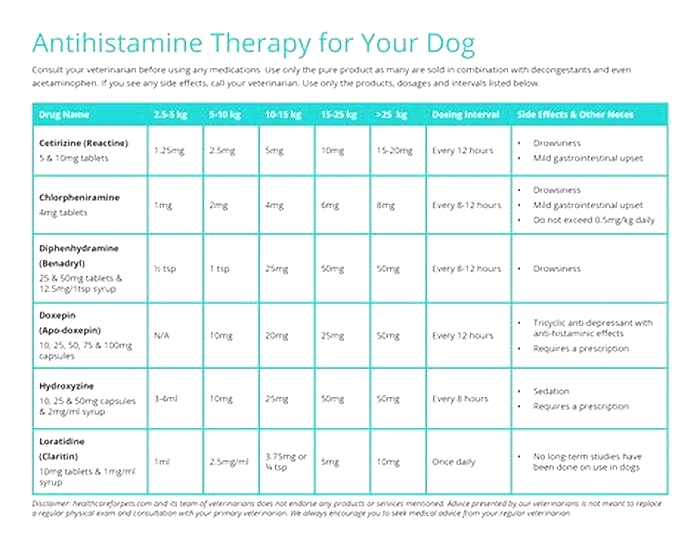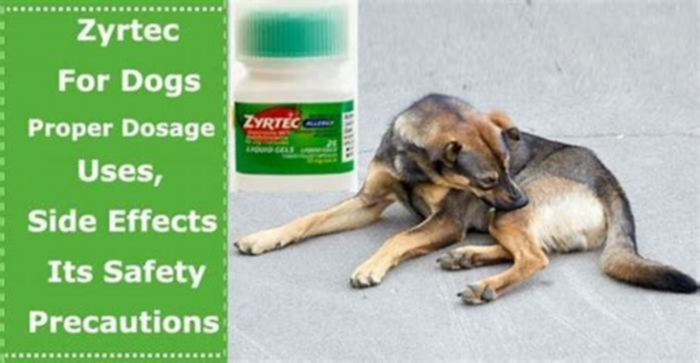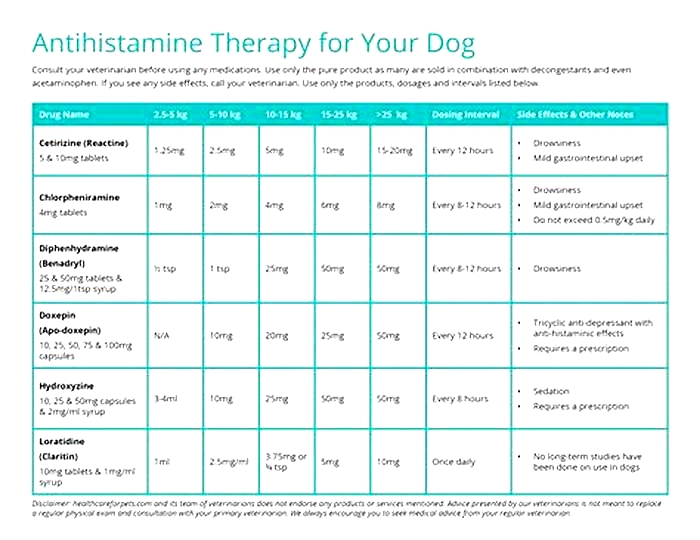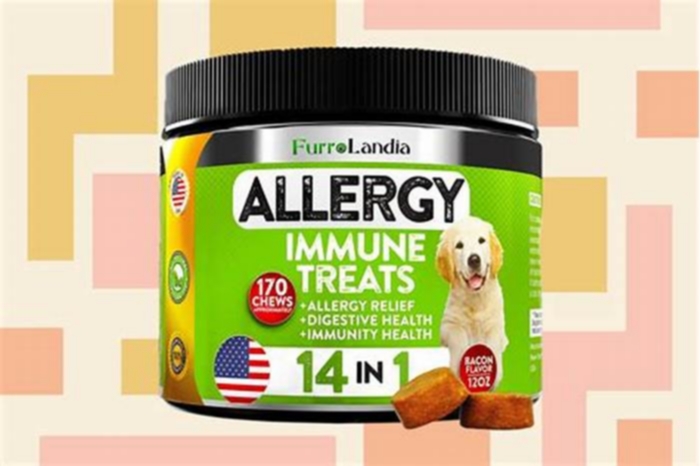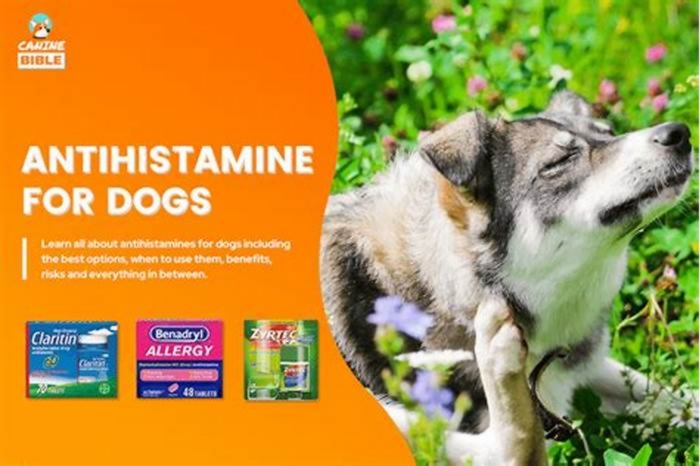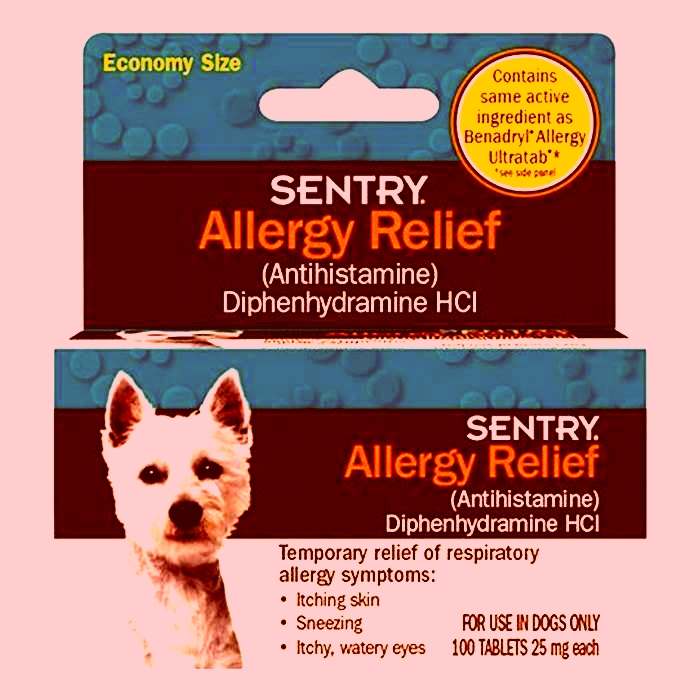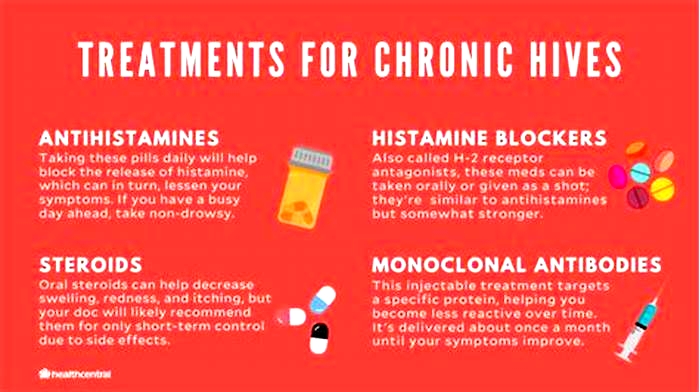Are human antihistamines OK for dogs
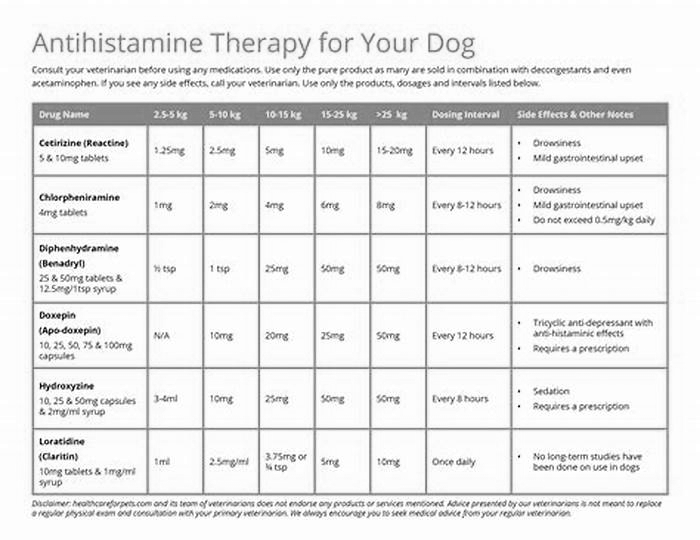
Are Antihistamines For Dogs Safe?
NOTE: You should always contact your veterinarian for advice and guidance before giving a pet any over the counter medication
No dog owner likes to see their pup sneezing, coughing and irritated due to an allergy. Yet finding a solution to the problem seems to be a lot harder than it should be.
Effective, safe and dog-specific allergy medicines seem to be annoyingly difficult to get your hands on (although they do exist), and so its only natural that dog owners have begun to question whether our own human antihistamines could help alleviate the symptoms of a struggling four-legged friend.
From Benadryl to Piriton, this article will explore the pros and cons of giving your dog human antihistamines, helping you to put a stop to your animals agitation!
Can I give my dog human antihistamines?
Human antihistamines are usually safe for dogs to take, but make sure you check the brand and correct dosage amount with your vet before giving one to your pet.
The most commonly used antihistamines are diphenhydramine, cetirizine and loratadine, which can all help relieve symptoms such as itching and sneezing for dogs.

Although sounding decidedly scientific, you may know these better as the main ingredients in well known branded allergy drugs such as Benadryl (diphenhydramine), Claritin (loratadine) and Zyrtec (cetirizine).
Just like with humans, these antihistamines can sometimes have side effects on dogs and so you need to be wary. Thankfully these arent usually harmful and tend to result in either making a dog very drowsy or opposingly making them behave more hyperactive or erratically.
But although most brands are generally safe, you do need to be careful when shopping for over the counter antihistamines. Occasionally they will contain other harmful ingredients such as decongestants which could be toxic for your dog.
Such mistakes can be avoided by thoroughly observing the label and ingredients list, or by getting in touch with your vet!
Best antihistamine for dogs
The best antihistamine for dogs is the Vets Best Seasonal Allergy Tablet, purely because its one of the only antihistamines on the market to be made especially for canines and not humans.
In fact, its not even suitable for human consumption!
This means you no longer have to stress over whether you can give your pooch a Piriton or not, as theres already a doggy designed option readily available!
While most canine allergy relief products are merely a vitamin or fatty acid supplement designed to boost itchy skin, Vet Bests tablets are one of the few to contain an actual antihistamine that prevents your pups body from reacting to allergens and stimuli they are sensitive to.
The tablets utilise the active ingredient diphenhydramine hydrochloride, the same antihistamine used in popular human allergy tablets such as Benadryl. And unlike other dog allergy medicines like Apoquel, Vets Best doesnt require a prescription, making them a cheaper and less time-consuming, quick fix!
The tablets work in the same way as a human drug, by blocking the bodys H-1 receptors in the blood vessels and muscles. This prevents your dogs body from producing histamines when confronted with non-harmful allergens, and in turn prevents irritating reactions like itching, sneezing, watery eyes and a runny nose.

Anyone who owns an allergy-suffering pup knows that skin issues are often the most troublesome symptom. So Vets Best tablets are a particular lifesaver when it comes to providing fast relief to minor skin irritations, helping to reduce constant scratching.
As the tablet is designed for dogs, working out the right dosage for your pet pooch is also totally hassle-free. Here is the simple dosage table for you to follow, based entirely on your pups weight!
- 10-24 lbs: 1/2 tablet
- 25-49 lbs: 1 tablet
- 50-75 lbs: 1 1/2 tablets
- 75 lbs+: 2 tablets
As with any medicines, you should always check with your vet before administering Vets Best to your pet, just to be safe.
Ask a veterinarian before use if your pet has:
- Glaucoma
- Asthma
- Heart Disease
- Hypertension
- Urinary Bladder Obstruction
- Enlarged Prostate Gland
- Hyperthyroidism
- Is Pregnant or Nursing
- Weighs under 15 lbs
Its also particularly important to avoid using it in combination with any other product which contains diphenhydramine, to help avoid overdose
Can I give my dog Benadryl?
Although it might seem strange, it is usually safe to give your dog Benadryl to relieve allergy symptoms, and its even prescribed or recommended by some vets.
However, like with any drug, it may not particularly be the best solution to your pups problem!
Benadryl has been known to have adverse effects when taken in combination with other medications your dog may be on, which is why its always imperative to talk to your vet before administering it.
How and when to use Benadryl for dog allergies
Benadryl is best for dogs who are suffering from low to mild allergic symptoms because the drug isnt specifically formulated for canines, so their effectiveness can range from mild to effective.

However, vets still often use it to ease environmental allergies in pups and also to deal with reactions to insect bites or stings. It can also be used as a pre-treatment for possible vaccine reactions.
It is to be taken orally, so it is often easiest to add a pill to your dogs food.
Benadryl is not a suitable medication if your pet is having an acute allergic reaction.
Symptoms of an acute reaction are characterised by facial swellings, difficulty breathing and in rare cases anaphylactic shock.
When to avoid Benadryl
Benadryl is one of the safest over-the-counter drugs that can double up as a doggy medication.
However, for canines with certain health issues, they are not the smartest choice.
For pregnant dogs, dogs with glaucoma and canines with low blood pressure or cardiac conditions, taking Benadryl is an unneeded safety risk and so its best to avoid using it.
And its also important to note that if you make the wrong choice, they can be a risk for healthy dogs too. Thats because some Benadryl tablets are combined with other medicines which make them unsuitable and so its vital you ensure your Benadryl tablets contain only diphenhydramine.
Whats the correct Benadryl dosage for a dog?
The recommended dosage of Benadryl for a dog is 1 mg per pound of body weight, to be taken 2-3 times a day. Standard tablets are 25 mg, and so they are the perfect size for a 25 lbs dog.
Obviously this gets trickier when your pup is slightly larger or smaller than 25 lbs and so the most reliable thing to do is ask your veterinarian for the correct dosage for your canine.
Can I give my dog Piriton?
It is generally considered safe to give a dog Piriton to treat environmental allergies, as long as you have sought guidance from a veterinary professional first.
Unlike some of the previously mentioned antihistamines, Piriton is mainly made up of the ingredient chlorphenamine. In the human world, this drug is mainly used to treat runny, itchy noses and hive symptoms, making it a great anti-allergy tablet.
However similar to Benadryl, it is often prescribed by vets to help treat dogs suffering allergic reactions.
But as with Benadryl, if using Piriton for a pup, you should be wary of there being a chance of side effects.
In Piriton these can include; drowsiness, constipation, dry mouth and nausea. In rare instances, these can be more severe and may include respiratory issues, irritability, poor coordination, urination issues and affected concentration.
Thankfully, all of these reactions tend to be fairly mild if they actually occur.
When to avoid Piriton for dogs
If your dog has an existing medical condition, it isnt worth taking the risk and giving them Piriton without the advice of a vet.
Whats the correct Piriton dosage for a dog?
Typically, vets recommend dosing by the dogs weight at 0.91.7 mg per pound of body weight, every 8 to 12 hours.
Its important to remember though that this is merely a guideline, and as always, the best way to determine the correct dosage for your dog is to contact your vet.
A List of Human Medications That Are Safe for Dogs

A List of Human Medications That Are Safe for Dogs

Jan 03, 2024

What Are Human Medications?
The US Food and Drug Administration (FDA) defines human medications or drugs as a substance intended for use in the diagnosis, cure, mitigation, treatment, or prevention of disease. It is a substance (other than food) intended to affect the structure or any function of the body. These chemical compound formulas are also referred to as medications, medicinal drugs, pharmaceutical drugs, or medicaments.
There are a few human medications that can be given to pets. However, there are several precautionary measures that must be observed to ensure that the desired effect/s is achieved without any adverse side effects to the animal patient.
Can Human Medicines Be Given To Dogs?
Some human medicines can be given to dogs on a regular basis (of course, with your veterinarians advice). Beware, there are other human drugs that can be very toxic. Even when over-the-counter (OTC) human medications can be purchased without a prescription, it doesnt always mean that theyre safe for your dog.
Determining how much human medicine to give to your dog is not simply obtained by extrapolating and estimating the dose. The possibility of drug interactions can be dangerous and before your veterinarian can give you the proper dose, there is a need to review your pets medical record to prevent any adverse reactions.
Humans and dogs differ in the way their bodies process and react to medications. Your best bet to ensure the efficacy of human medication in dogs is to ask your veterinarian for the right dosage. It is also the best way to minimize or altogether prevent potential side effects.
Always make a habit of checking product labels when buying human medicines for use in pets. There are human medications that should never be given to dogs.
Joint Health Boost: Top Supplements for Your Dogs Mobility
Supporting your dogs joint health is essential for ensuring their mobility and overall well-being. Explore the top supplements designed to boost joint health and flexibility in dogs. Look for products that contain glucosamine and chondroitin, known for their positive impact on joint function. These supplements can help alleviate discomfort, promote cartilage health, and maintain an active lifestyle for your furry friend.

9.4
- All-natural ingredients with an excellent taste for soothing joint discomfort
- No corn, wheat, soy, by-products, artificial colors, flavors or preservatives.
- Contains glucosamine, chondroitin, and green-lipped mussel to increase mobility and flexibility of joints and connective tissue. Also contains omega-3 oil and turmeric which act as anti-inflammatories
- Vet recommended for senior dogs to help combat side effects of aging
- Safe for dogs 5 years and older

9.4
- Grain-free chews feature cold processed New Zealand Green Lipped Mussel and provide your dog with daily hip, joint, and digestive support.
- Dog-licious soft chews contain naturally occurring glucosamine and chondroitin to support your pups hip and joint function.
- Promotes mobility, agility, comfort, wellness, and ease of movement for dogs of all ages, breeds, and sizes.
- Rich in the omega-3 fatty acids EPA, DHA, and ETAwhich may provide additional joint support benefits.
- May also promote healthy digestion and decrease stomach discomfort from gas, bloating, upset, and constipation.

9.4
- Helps maintain healthy bone and joint function.
- Supports healthy joints and flexibility.
- May help relieve inflammation associated with normal daily exercise and activity.
- Helps ease joint stiffness due to normal daily activity.
- Crafted with an irresistible natural chicken flavor.

9.4
- Formulated with a blend of powerful ingredients that help promote flexibility, mobility, range of motion, comfort and overall hip and joint wellness.
- Contains glucosamine HCL, chondroitin sulfate and New Zealand green lipped mussel to help cushion and lubricate your older poochs hips and joints.
- Enhanced with OptiMSM, a premium form of methylsulfonylmethane, that undergoes a multi-stage distillation process ensuring 99.9% purity for increased muscle support.
- Made with Qmin, a form of turmeric curcumin, and BioPerineblack pepper extractto help support connective tissue and cartilage.
- Includes hyaluronic acid and vitamins C and E for strength, flexibility and comfort.

9.4
- Crafted with a delicious chicken flavor.
- These chewables contain hemp seed, which provides a source of stearidonic acid (SDA), a precursor to long-chain fatty acids and may support immune function.
- At 400 mg per chew, OptiMSM is a premium form of MSM that undergoes a purifying distillation process to provide premium muscular support for your doggy.
- Each chew includes turmeric extract, a natural source of curcuminoids that may ease joint stiffness due to normal, daily exercise and activity.
- These chews also include glucosamine, chondroitin, vitamins C and E, organic turmeric, zinc and organic boswellia for additional pet joint support.
List of Human Medications That Are Safe for Dogs
There are several types of human medicine that are safe for use in dogs. These include the following:
Antihistamines At the first sign of hives, itching, and other allergy symptoms, giving antihistamines can help ease the flare-up. For some pets, antihistamines have sedating effects. This is particularly true in dogs that are also taking mood-altering medications, and certain pain relievers, and seizure drugs.
NSAIDs -Non-steroidal anti-inflammatory drugs (NSAIDs) are often prescribed for pain, inflammation, and fever.
Antidiarrheals and Antinauseants These medications are given for digestive upsets (diarrhea and vomiting). They contain ingredients that can help soothe upset stomachs. If diarrhea does not resolve after a dose, you should contact your veterinarian.
Antacids These drugs act to inhibit the production of acids in the stomach and are often prescribed for pets experiencing excess gastric acid production, such as stomach inflammation (gastritis). Famotidine and cimetidine are the most common antacids given to pets.
Steroids Topical steroids are often applied to itchy red patches and hot spots. The most common active ingredient is hydrocortisone. The steroid prednisone has a stronger anti-inflammatory activity than hydrocortisone. It is often administered in emergency situations, like anaphylaxis, trauma to the spinal cord, and certain types of shock.
Steroids can also be prescribed by veterinarians for immune-mediated hemolytic anemia, thrombocytopenia, some types of cancer, disorders of the central nervous system (CNS), skin diseases, specific endocrine disorders, allergic reactions, and many other health issues.
Topical antibiotic ointment -These products are often used for minor cuts and abrasions and are applied for a day or two onto clean skin. When buying antibiotic ointments, be sure to read the labels. Steer clear of products that contain hydrocortisone, tetracaine, and other ingredients. Instead, choose one that contains only the antibiotic. Steroids can actually delay the healing process.
Antifungals Uncomplicated fungal infections can be resolved with miconazole and other antifungal medications. Antifungal sprays, gels, and creams are often recommended by veterinarians for use in pets with fungal infections until they can be brought to a veterinarian clinic.
Joint supplements Glucosamine and chondroitin are the most common human joint supplements that are given to dogs to promote joint health. Since joint supplements are not created equal, you should ask your veterinarian for a product that is safe and effective for use in dogs.
Anti-anxiety medications These medications are often prescribed for dogs that are prone to anxiety attacks and/or have behavioral issues. There are several triggers of anxiety and fear in dogs like being in a new and strange environment, psychological stress, loud noises, and even being left home alone for considerable lengths of time frequently.
Hydrogen peroxide Hydrogen peroxide can be applied topically to clean superficial wounds. It can also be given orally to induce vomiting in dogs. However, you should contact your veterinarian before administering an oral dose of hydrogen peroxide to your dog to find out if its safe to do so and how much to give.
Artificial tears and lubricants These preparations are used for minor eye irritations and very mild conjunctivitis. They can help relieve eye redness and inflammation of the conjunctival membranes.
Artificial tears and lubricants should not be used if your pet has eye discharges of whatever color (white, green, or yellow), extreme redness or swelling around the eyes, or if there is pain and discomfort affecting the eye. You should bring your pet to your veterinarian immediately for appropriate diagnosis and treatment.
What Human Allergy Medications Are Safe For Dogs?
Antihistamines are human allergy medications that can be given to dogs. These medications are commonly used for the relief of allergy symptoms or to counteract hypersensitivity reactions. Just like in humans, some antihistamine preparations can make some dogs drowsy, while others can become hyperactive.
Antihistamines are generally safe but there are preparations that may contain decongestants and other drug combinations. Talk to your veterinarian to make sure that youre giving an antihistamine thats suitable for your dog.
The most common human antihistamine medications that are also used in dogs include:
Aside from being used in dogs for allergies, diphenhydramine, (Benadryl) can also be used for motion sickness in dogs. Benadryl is contraindicated in pets with high blood pressure (hypertension), heart disease, or glaucoma. Some diphenhydramine formulas contain alcohol or combine with cold or flu medications these variants should not be given to pets.
Can You Give A Dog Ibuprofen?
Ibuprofen (Advil, Motrin, Midol) should not be given to dogs except under the close supervision of a veterinarian. Ibuprofen is a non-steroidal anti-inflammatory drug (NSAID) that is used for fever, pain, and inflammatory conditions in humans. Like other NSAIDs, ibuprofen treats inflammation by blocking certain reactions and enzymes in the body.
Ibuprofen Poisoning
Ibuprofen poisoning occurs when a toxic dose is ingested by a dog. Although NSAIDs can be relatively safe in humans, they can be extremely harmful to dogs when misused or consumed by accident. Take note that even small doses of ibuprofen can have adverse effects and can be toxic.
Risk Factors Of Ibuprofen Poisoning In Dogs
There are factors that can increase a dogs risk of ibuprofen poisoning as well as the severity of the side effects. These include:
Can You Give A Dog Aspirin?
Aspirin can only be given to dogs under the supervision of a veterinarian. Aspirin is a common painkiller in humans. It is also used for inflammation and fever. It also acts as an anti-coagulant. Just like ibuprofen, aspirin is classified as an NSAID.
When it comes to treating inflammation, NSAIDs have fewer side effects compared to steroids. But the possibility of side effects from aspirin and other NSAIDs is still very much present. Aspirin is prescribed by veterinarians for dogs suffering from inflammatory conditions, such as osteoarthritis. Aspirin provides relief from pain and inflammation associated with these problems.
What Are The Adverse Reactions To Aspirin?
An important fact that dog parents should always keep in mind is that adverse reactions associated with aspirin use in dogs are relatively common. This warrants the need for pet owners to be aware of the risks and the signs indicating an adverse reaction or overdose.
You should stop giving your dog aspirin and seek immediate veterinary attention if your dog is showing any of the following symptoms:
- Digestive upsets vomiting and/or diarrhea
- Black, tarry stool this is brought about by mucosal erosion and stomach ulceration
Symptoms Of Aspirin Overdose
If your dog has an aspirin overdose, the following symptoms may be exhibited:
What Human Medication Can You Give Your Dog For Pain?
If your dog is in pain, you might be tempted to reach into the medicine cabinet for the aspirin, ibuprofen, acetaminophen, or any other pain reliever that you and your family are using. But you should never give human pain reliever to your dog without consent and instructions from your veterinarian.
Non-Steroidal Anti-Inflammatory Drugs (NSAIDs)
The most common human pain medications that can be given to dogs are NSAIDs, such as meloxicam, carprofen, and etodolac. An important thing to remember when giving NSAIDs to dogs is that these drugs are associated with adverse reactions that can sometimes be life-threatening without appropriate veterinary attention. Sometimes, even when a correct dose is given, hypersensitive dogs can develop dangerous side effects to NSAIDs.
Aspirin, ibuprofen, and naproxen are just some of the common examples of NSAIDs. They act by inhibiting the action of an enzyme that produces prostaglandins that promote inflammation, pain, and fever. By inhibiting these prostaglandin-associated issues, NSAIDs also inhibit the positive actions of prostaglandins, which is maintaining adequate blood supply to the kidneys, promoting normal blood clotting, and stimulating mucus production to protect the inner surface of the gastrointestinal tract (GIT).
As a result, inappropriate dosing of NSAIDs in dogs can eventually lead to the development of ulcers in the stomach and intestines, vomiting and diarrhea that often has blood, appetite loss, kidney dysfunction, bleeding disorders, and in some cases, liver damage.
Final Thoughts on Giving Human Medications To Dogs
As with all medications, human and specifically designed for dogs, it is extremely important to consult with your vet first. Even a small dose could end up causing adverse reactions in your dog if its the wrong medication.




